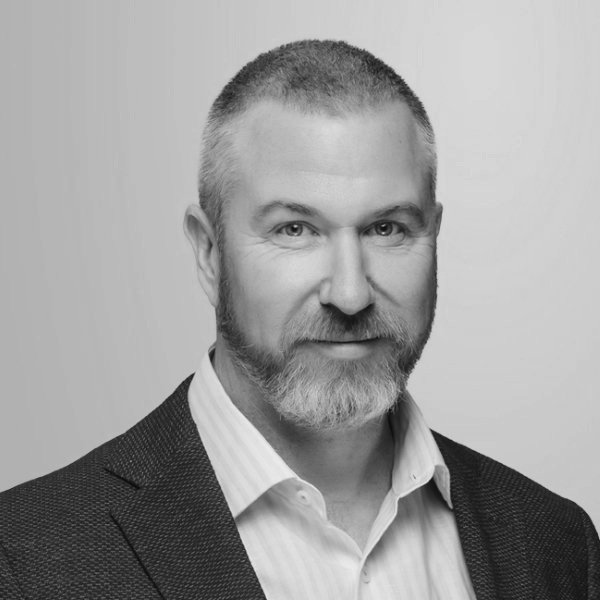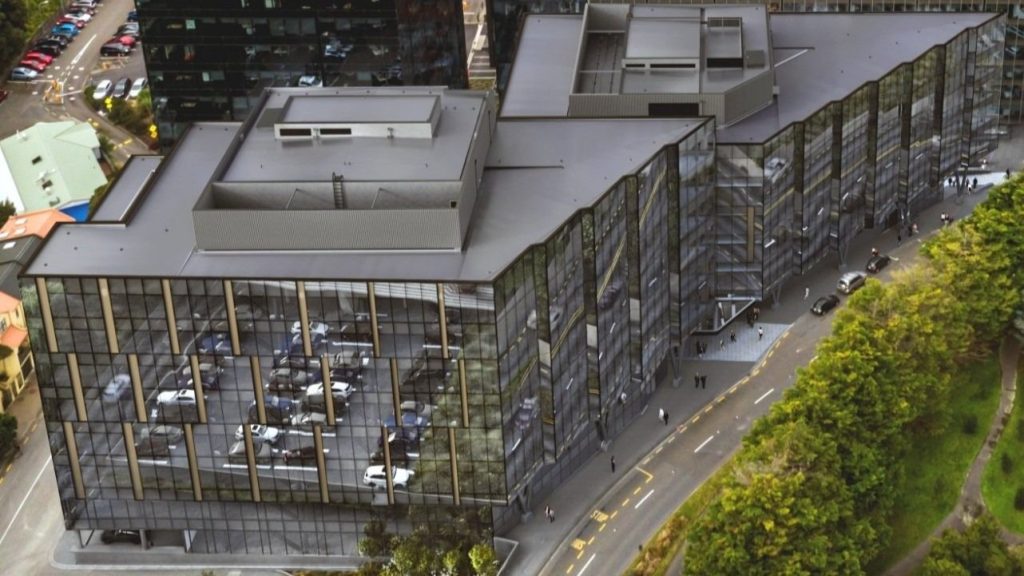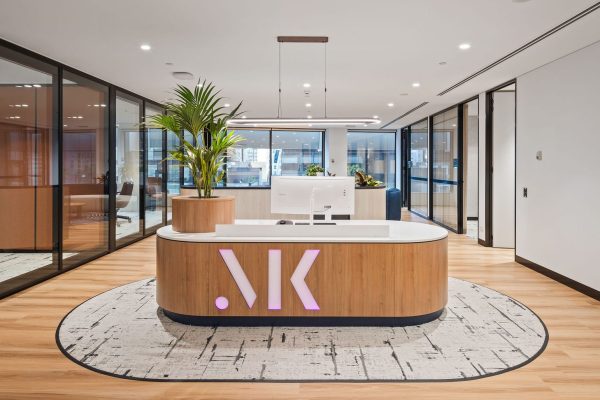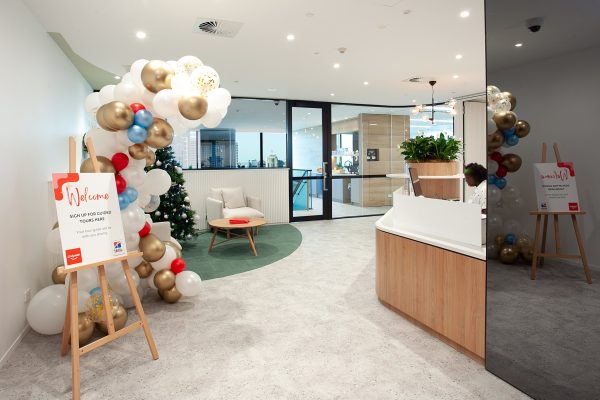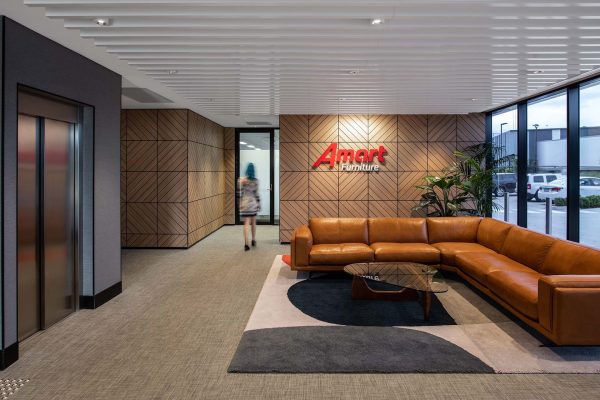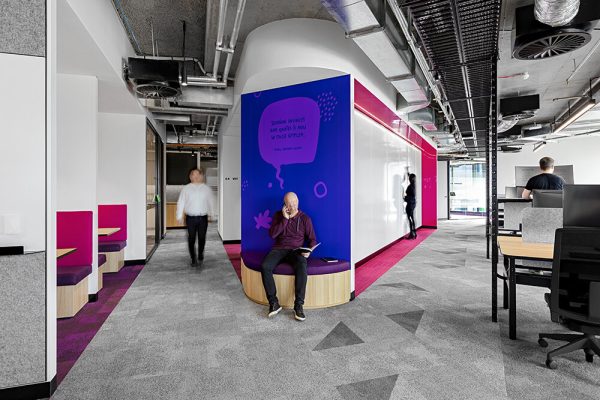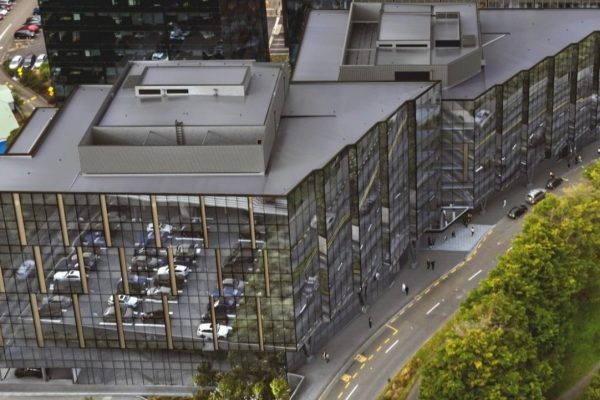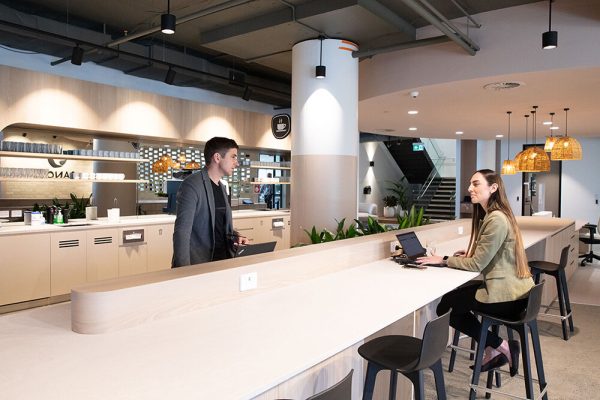What does KPMG do?
KPMG is one of the big four accounting firms that is spread worldwide, with 200,000+ staff. KPMG are primarily chartered accountants and an advisory consultancy business. KPMG has been a well-known and well-established business for over a hundred plus years, that have been involved with a variety of private and public sectors.
What is your role within KPMG?
I’m the National Operations Director for New Zealand. First and foremost, I look after, the premises across the different locations in New Zealand, where we work and how, how we work. And I look after all our core administration staff, who look after the corporate floors, reception facilities and catering.
What complexities were you grappling with when you were looking for a workplace partner?
I believe for KPMG in New Zealand, one of the complexities is the idea of change and uncertainty over what the required change may be. We need to make sure that, KPMG has flexibility. However, not necessarily knowing which parts of the business may see the biggest changes is a complication.
KPMG is a reasonably complex business, as we’ve seen many changes over the last few years. Such as the composition of our business and some redirections in what we fundamentally do. KPMG has a large consultancy practice. However, 20 years ago the consultancy practice side was sold. Subsequently, KPMG decided to revitalise the consultancy practice 10 years ago and it has grown from then to again be one of the bigger divisions in our business.
On an external level, lots of economic factors impact which parts of the business are going to be busy and which parts aren’t. Therefore, KPMG’s New Zealand numbers change reasonably dramatically from one year to the next. And it’s quite difficult to truly determine how we build that flexibility into, a floor plate. We need to anticipate further technological change over the next few years and future proofing for that inevitability is challenging.
What were you looking to achieve by conducting a workplace strategy with Athena Blue Global, what’s next and why?
The part we wanted Athena Blue Global to play was driven by our move to a new workplace in Wellington. We wanted independent thought and advice from experts in the work area that was outside of our own expertise. Also, we wanted to challenge the traditional method of using architects to help us with our premises strategy we really wanted a business and client-focused strategy that the architectural design flowed from.
Therefore, one of the reasons we selected Athena Blue Global was to ensure the strategic reasoning was independent of that design focus. And I think because of that, we’ve got the best outcome that is both people and client-centric.
What key success metrics within your organisation will you be looking for as a result of your workplace strategy?
Well, we want a workspace that’s reflective of our values and changes the way our business and people flexibly work.
We want our clients to feel they’re part of the firm as well. We really wanted to think about them going forward and how they integrate to our workplace. Over the last few years, we’ve tried to do so, and I think we’ve done it reasonably successfully. However, KPMG hasn’t built premises around that concept, other than organically working closer with our clients. We have now developed a building suite, where clients can utilise our space almost as much as our staff can.
In terms of a success metric, once we move in it’s about how our staff can adapt, work and build closer relationships with our clients. We can be less concerned about the bricks and mortar aspect, that separates our working side of the business from our client side of the business and truly work together.
Working with Athena Blue Global has cemented this ambition.
Flexibility in a business is a very good thing, but managed flexibility is a far better thing.
ROSS EDDINGTON
What are you expecting next from that part of the journey?
Our next part of the journey is to turn it into a more nationally focused plan, whilst using Wellington as a base case. Therefore, we can make sure we are driving flexibility into the way we work on a national level.
COVID has taught us a lot of lessons about how we can work. I think it’s probably going to assist help us in our building piece. Like other businesses that had the technology, but may not have utilised its full potential, we are “forced adopters” rather than “early adopters”. KPMG was truly forced to work in a different way and we will see long-term benefits from this.
In terms of the overarching vision for KPMG, I do believe we wanted to move to a hybrid working space. In New Zealand, we’ve dipped our toes into agile working and flexible working in the past. KPMG Australia was an earlier adopter of that, so naturally, in New Zealand, it was our ambition to follow suit.
What have you learned along this workplace journey so far?
I would say we are still learning. However, flexibility in a business is a very good thing, but managed flexibility is a far better thing. I think some of those principles and elements that we are yet to work through in this change management process are due to being forced into it. However, I do believe there are better tools, ways, and methods of making that work best for our organisation going forward.
The key learning element is this chaos in flexibility doesn’t need to exist. There are some key principles and changes, that when adopted and implemented well make a business and individuals work more efficiently when flexible work is managed.
What advice would you give anyone who is feeling a little lost thinking about the impact of COVID-19 on their workplace?
In terms of advice, I say this. Take up those challenges we’ve been put through, during COVID19. Learn from that experience and make these experiences part of your ongoing workplace culture. Build on your learning blocks for long-term stability, because change is inevitable.
If we take on those lessons and opportunities that have been given to us, we can use them to our advantage. Ultimately, you can improve your bottom line, embed effective technology aspects, outline best practices, and invest more in your people from the luxury of being able to work from anywhere.
Technology is such a key tool, especially when you’re looking to work in a very decentralised way. Is there anything you’d do differently?
Always! I mean, we make mistakes along the way. However, the most challenging aspect for us was the technology side. Plus, we lean more towards an apprenticeship-type business. For example, KPMG New Zealand hires a lot of new graduates every year. Essentially for the first few years, it is about engaged mentorship, training, and making sure we do our best to allow our people to deliver their best work.
We take on people with great personalities but having that ability for them to sit next to someone senior all the time to allow them to learn was really challenging over the past two years while working remotely.
Therefore, working out mechanisms for how they can get that Manager/Partner interaction with more junior people daily, if they can’t be together is something that we need to improve at.
This year we hired 200 graduates, wherein at that point in time, we only had 20% of our workplace at full capacity. So, having those genuine interactions, mentorship, training, and the ability for our new grads to listen and watch what their managers and peers were doing is challenging. And, it’s continuing to be challenging, so we need to resolve how we’re going to combat that in the future.



